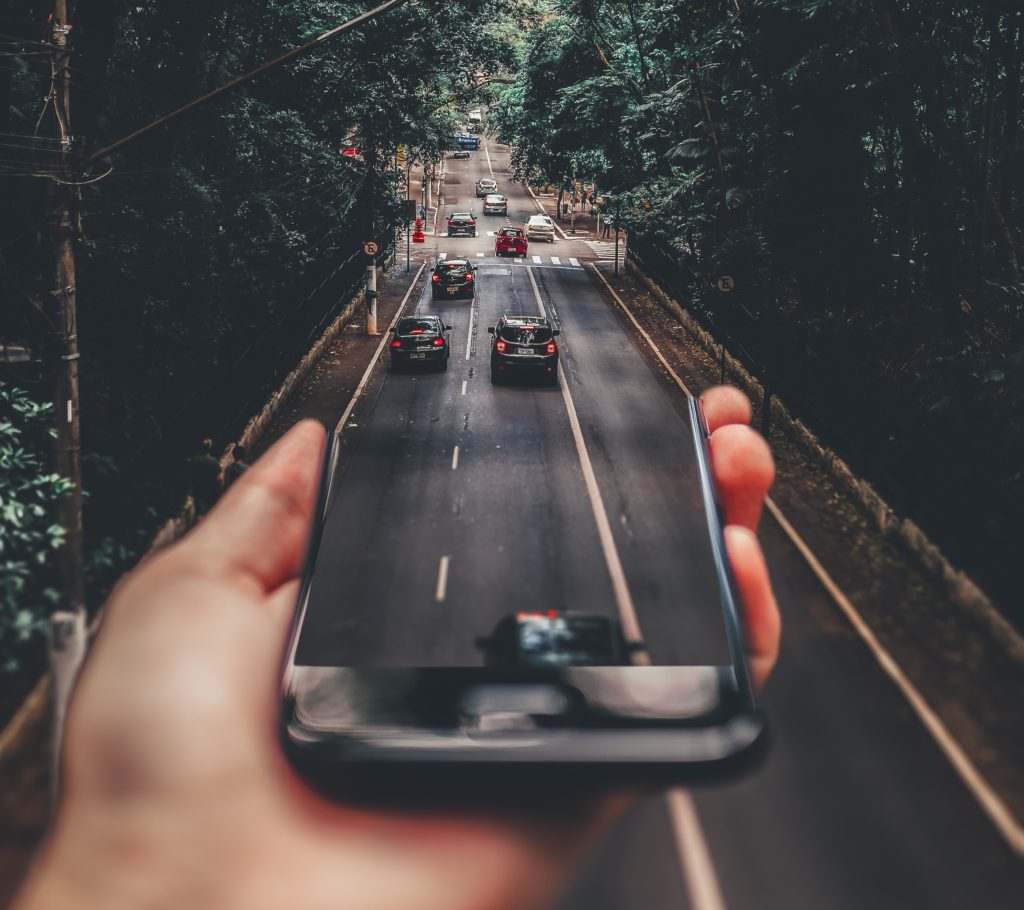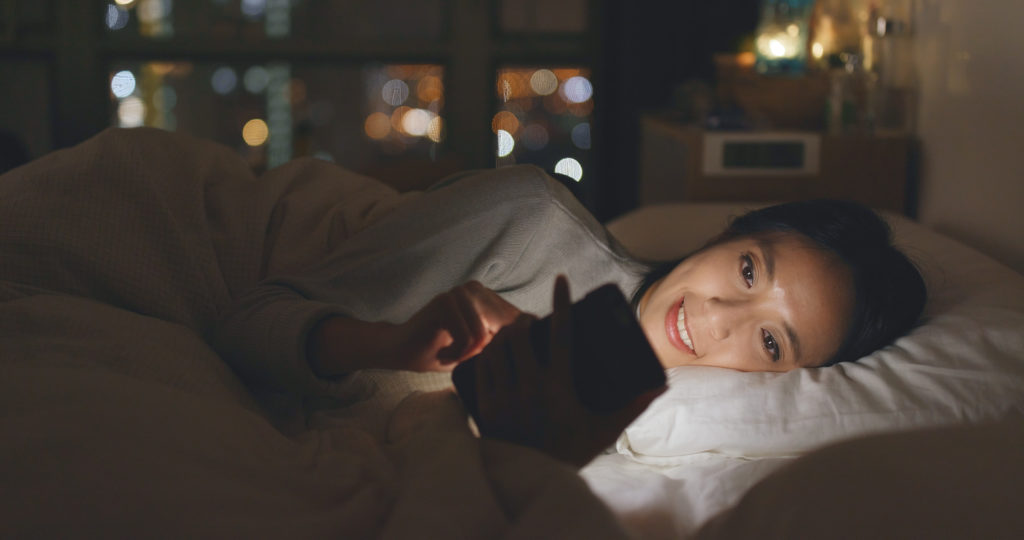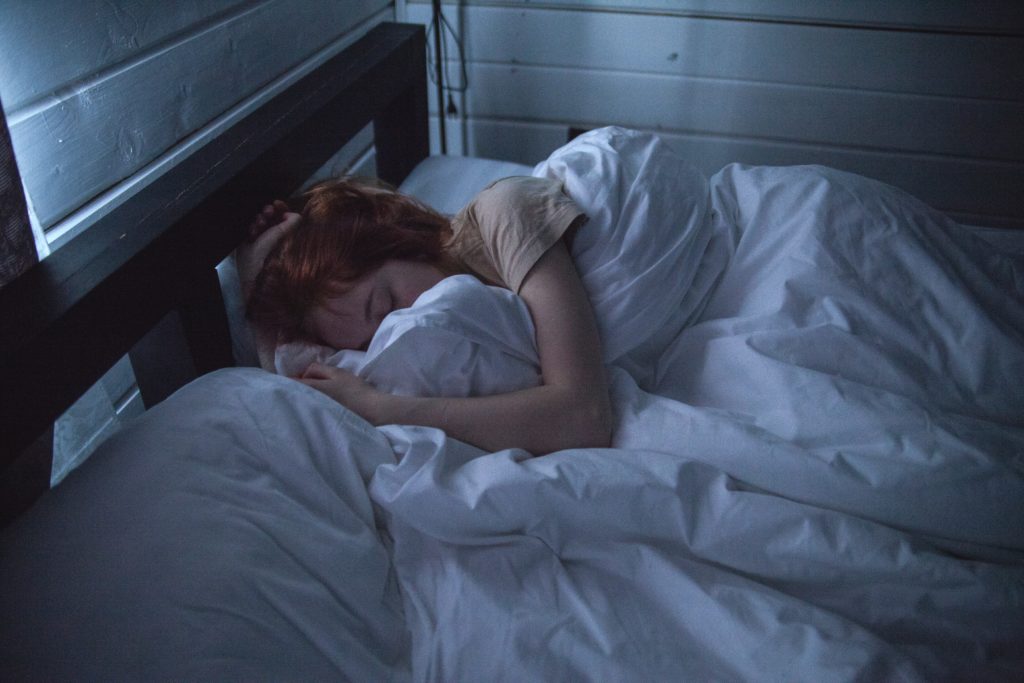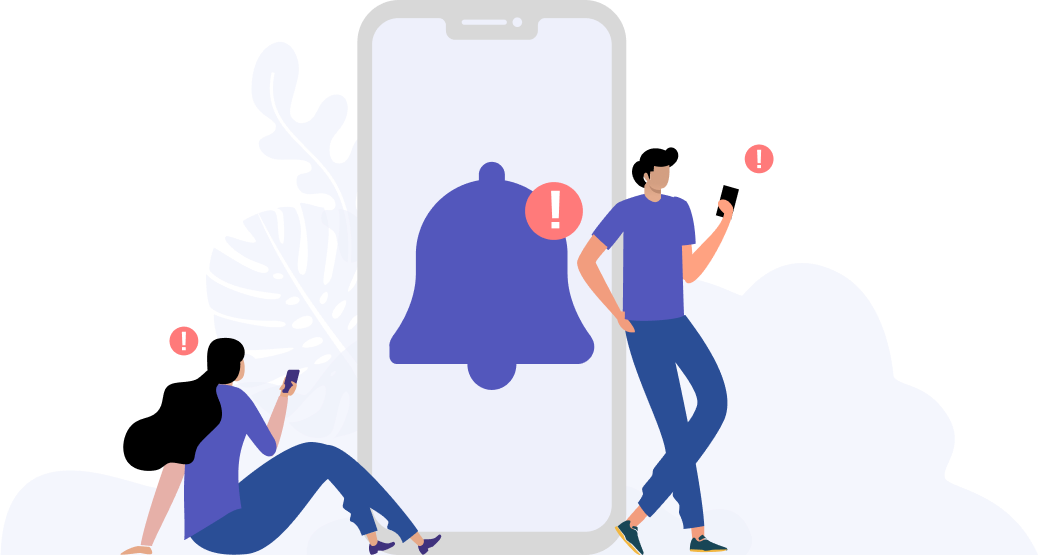Is Your Phone’s Blue Light Ruining your Sleep?

At the end of a long day of balancing all the stresses that modern life throws at you, once you finally get to sit down and put your feet up, how do you spend those last couple of hours of downtime before you go to sleep? And how do your children spend this time?

If you’re like most people living in the year 2020, there is a good chance you are drawn into the temptation of scrolling mindlessly through social media, or reading the news on your favourite news app. And just in the next room, your kids are probably playing their new favourite mobile game or poring over an endless stream of YouTube or Netflix videos.
Finally, after one or two too many hours of being glued to your device, you peel yourself away only to have to play a battle of wills with your kids to get them off their devices and to sleep. And then you realise when you head off to bed that you don’t feel particularly sleepy. At the same time, your child may be struggling to fall asleep in the next room.
As it turns out, your screens may be to blame for the ensuing poor night’s sleep and grogginess you both have to deal with the next day.
More specifically, the blue light emitted from the screens of digital devices has been shown to cause significant disruptions to sleep. Research has shown that this blue light suppresses the production of melatonin, a hormone produced by the brain that helps induce sleep.
Melatonin – the ‘hormone of darkness’
Our body’s circadian rhythm or body clock enables us to stay awake during the day and go to sleep at night. Our brain’s cyclical secretion of melatonin facilitates this – i.e. during daytime its production is low, and as it gets progressively darker, closer to bedtime, its production increases, which makes us sleepy and signals to us that it is time to go to bed.

However, when we look at our screens before bed, the blue light suppresses melatonin production and tricks our brains into thinking it is still daytime. The effects of this disruption can be likened to jet-lag: your sleep cycle is disrupted, and you find it difficult to fall and stay asleep at your usual times, and you may find yourself waking up more frequently at night.
No, you’re not intoxicated. You’re just tired.
Startlingly, research shows that even small amounts of sleep deprivation have comparable effects on brain function to those of alcohol intoxication: a 17 – 19 hour period of no sleep, which may be the same as waking up at 7am and going to sleep at 1am which many of us do regularly, is equivalent to a blood alcohol concentration of 0.05%.
Most of us are familiar with this level of sleep deprivation. Just a few extra minutes of mindless Instagram scrolling or YouTube viewing end up carrying us away until well past midnight because we lost track of time. We end up having a disrupted and restless sleep, with the consequences being that our brains’ response times slowing by up to 50%.
And when it comes to our children, according to the National Sleep Foundation, the effects of inadequate sleep are alarming. Children who do not get enough sleep find it difficult to wake up in the morning, become moody and irritable in the daytime and find it difficult to focus during school.
What can we do to ensure that good sleep and screen hygiene for ourselves and our children?
It is imperative that we assume the responsibility for facilitating the development of healthy tech-habits at an early age, and it is a good idea to lead by example for your own sleep quality as well as to create a culture of good sleep hygiene in your home.
Consider implementing these guidelines in yours and your children’s night-time routines:
Impose a digital curfew on all electronics 1 – 2 hours before bedtime to allow for the body’s natural production of melatonin to kick in.
In instances where 1 cannot be adhered to, dim the brightness on screens.
Install an application that automatically warms up the colour on the screen shifting away from harmful blue light to red and yellow hues. At these longer wavelengths, melatonin production is not suppressed. The plano application’s ‘blue light filter’ enables parents to toggle the feature on your child’s phone. *Subject to device’s capabilities
Quality sleep is our children’s prerogative
At the end of the day, all we want as parents is for our children to lead successful and happy lives, and for this, they need to be sharp and stay functioning at the optimum level. At the crux of it all is sleep. Sleep is crucial for their neurological development, growth, memory formation and consolidation of everything they learn.

Unfortunately these days, the importance of sleep seems to be grossly overlooked. The good news is, just a few improvements to their night routine can make a world of difference to the rest of their lives and it is imperative that we start them off on the right foot early!
Tools Designed for Healthier Eyes
Explore our specifically designed products and services backed by eye health professionals to help keep your children safe online and their eyes healthy.





